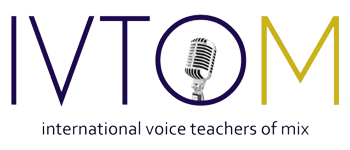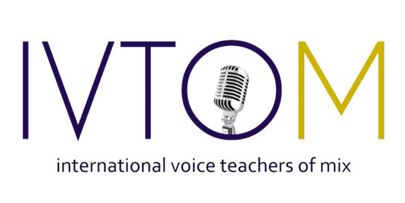More Hints for Building and Strengthening your Vocal Studio
Weekly Teaching Tip – June 24, 2013
by MaryAnnKehler
I am absolutely convinced that the best way to build a studio is to have successful students. Earlier this year, I shared in a Weekly Teaching Tip some of the things my studio does to help students be successful, such as helping them find gigs, auditions, performance opportunities, voice teachers in other cities, etc.
Another teacher recently asked “How can I attract new students?” If you visit any Facebook page that focuses on private lesson teaching, you’ll see that same question over and over. Here is some of what works for my studio, which is located in Denver, Colorado, USA.
Honestly, I’m inconsistent about social media; my website is badly in need of an update; and I don’t advertise much. I have 150 private students and coach several small ensembles and duos. I provide workshops for educational events, large community choirs and worship teams. In the past ten years, I have taught 28,000 lessons.
Sometimes, I wonder how that happened. The truth is that the recession forced expansion on my studio. Five years ago, I had a waiting list and 90 students who mostly took weekly or bi-weekly lessons. As so many teachers experienced when the economy faltered, most of my students had to reduce the number of lessons they took each month. It was quickly obvious that I would have to change the way I did business. I had the same number of hours to fill; students were taking fewer lessons; so I would have to cast a bigger net and teach more students, which meant that scheduling would have to become more flexible. It’s a lot of work to juggle a schedule that includes regular weekly lessons, bi-weekly lessons, monthly lessons, and “random” lessons. At the same time, I know other teachers who have huge holes in their schedules and who insist they will only see students for regular weekly lessons. I’d rather deal with the scheduling issues and be busy!
Print advertising is expensive and bad for the environment, so I decided to put my limited resources to work in another way. Instead of spending on advertising, I selectively offered scholarships to current students whose were experiencing tough times. Since there were a lot of holes in my schedule, it was better to be teaching and building good will, than worrying about cash flow. There was nothing to lose but time that wouldn’t have been generating revenue anyway. At one point, I was giving $1,000 per month in scholarships for students who absolutely could not afford lessons. Every one of those students is still on my schedule and is now paying for lessons AND they all have referred others to my studio. One of them has referred 15 new students in the past two years!
Outside of scholarships, I don’t give free or reduced-fee introductory lessons. I know that is customary in some communities and it may work for you. I have a reputation as a good audition coach and, in the days when I did give a “free introductory lesson”, had the experience that singers would come in for a free lesson, ask for coaching just before getting on a plane for an audition, get the part, and I would never hear from them again. Of course, teaching lessons on Skype has changed our ability to work long-distance and that experience might be different now.
Students sometimes still ask for a introductory free lesson, so I can “get to know” their voice. My response is that it takes 90 seconds for a well-trained teacher to diagnose a voice and that “you will leave the lesson singing more easily than when you came in and will take a recording of the entire lesson home with you.” I think that my confidence inspires their confidence.
Networking is such an important part of attracting new students! When you attend a student’s performance, whether professional, community, or high school, seek out the music director or producer or band manager and introduce yourself. I always have business cards handy and follow up with an email complimenting the band or choir or musical. If it’s a school show, I say hello to the parents of my students after the show; they introduce me to other parents. I attend an average of 20 student performances each year. Since I teach high school students, community performers, and a lot of professionals, that takes some juggling, but the exposure gives great results. Many new students come from referrals from the people I meet at these events.
Develop a relationship with your local ENT medical practice. I work with a lot of voices that are recovering from damage, because I’ve made huge efforts to educate myself about what those voices need. If one of my students needs a scope, I ask permission to observe the procedure. On the theory that there are no dumb questions, I ask questions at the most elementary level, about what is happening physically and how it is affecting that student’s voice. I’m now receiving referrals from a very busy ENT practice and three different speech pathologists, one of whom is now my student, as the result of that work.
When I travel, I often contact a local high school choir or theatre director via email, and offer to give a free talk on choosing the right college or conservatory, which is one of my specialties. There are usually four or five students who ask to talk with me after the presentation and they often become my students. This is a great way to grow a business, whether it’s your hometown or another state. Think about what you do best and how to reach many of those students at one time. An added bonus has been that I’ve been able to fill those challenging 2-4 p.m. spots with students who Skype from other time zones.
I no longer give referral bonuses because there tend to be “clusters” of students who all know each other and there is always the question of who actually referred the student, which has caused tension more than once. If I know that a student has referred several others to my studio, I thank them by giving them sheet music or a chart for a new song, that I purchased especially for them; it’s not a photocopy. A couple of years ago, I learned that a high school choir director who had sent me several students couldn’t afford for her daughter to study with me, so I gave her a gift certificate for four lessons for her daughter.
I believe that students are attracted to teachers who care about their success. If a student has an important audition, I offer to warm them up via phone, if that can fit into my schedule. I don’t charge for that time. I do have established lesson hours and willingly extend them to accommodate a student whose voice is in trouble or who has an unexpected audition. If a student who takes random lessons hasn’t been in the studio for a while, I email them with a suggestion for a new song. Often, that contact will result in them scheduling several lessons or I’ll get a return email: “Thanks so much for staying in touch. I’m budgeting for a lesson next month and will get to work on the song you suggested.”
I also believe that all the marketing in the world won’t be successful in the long term if I’m not on top of my game. If I was only teaching what I knew ten years ago, I would be bored and boring. I take regular private lessons and spend 30 minutes each day reading everything from popular music mags to Vocology: The Science and Practice of Voice Habilitation (Titze and Abbott, 2012). I attend conferences and am very much looking forward to the U.S. Conference in Salt Lake City next month. It will give me an opportunity to take class from other teachers, share what I know, and spend time at the National Center for Voice and Speech. It doesn’t get better than this!
Have a great week!

